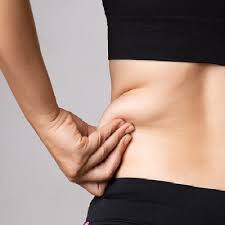Recovery Tips After Rhinoplasty: A Guide for Dubai Patients
- Get link
- X
- Other Apps
Rhinoplasty, commonly known as a "nose job," is one of the most popular cosmetic surgeries worldwide. Rhinoplasty Dubai, the demand for rhinoplasty has grown significantly as people seek to enhance their facial features and boost self-confidence. After undergoing rhinoplasty, following proper recovery steps is essential for achieving the best possible results. This guide will walk you through essential recovery tips to ensure a smooth and successful healing process.
Understanding the Recovery Process
The rhinoplasty recovery process varies for each patient, depending on the extent of the surgery and individual healing factors. Typically, the initial recovery phase lasts around one to two weeks, during which swelling, bruising, and discomfort are common. Complete healing may take several months to a year, as the tissues inside and outside the nose need time to settle into their final shape.
Immediate Post-Surgery Care
The first few days after rhinoplasty are crucial. Following your surgeon’s instructions closely during this time is essential for preventing complications and ensuring proper healing.
Rest and Elevation
Rest is vital during the initial recovery period. Keep your head elevated, even while sleeping, for at least the first week. Elevating your head helps reduce swelling and prevents unnecessary pressure on your nose. You can prop up pillows or use a recliner to maintain this position comfortably.
Ice Therapy
Using cold compresses or ice packs around the eyes and cheeks can help minimize swelling and bruising. Avoid applying ice directly to the nose, as it can cause discomfort or disrupt the healing tissues. Apply ice packs in intervals, such as 10-15 minutes on and 10-15 minutes off, during the first 48 hours after surgery.
Take Prescribed Medications
Your surgeon may prescribe pain relievers and antibiotics to manage discomfort and reduce the risk of infection. Make sure to follow the prescribed dosage instructions carefully. Avoid over-the-counter medications like ibuprofen and aspirin, as they can increase the risk of bleeding.
Managing Swelling and Bruising
Swelling and bruising around the nose and eyes are normal after rhinoplasty. These symptoms typically peak within the first few days and gradually subside over time.
Be Patient with Swelling
Swelling can last for several weeks, and it may take up to a year for your nose to fully settle into its new shape. The tip of the nose, in particular, may remain swollen longer than other areas. Be patient and give your body the time it needs to heal.
Avoid Hot Showers and Sun Exposure
Heat can increase swelling, so avoid hot showers, steam rooms, and direct sunlight during the first few weeks after surgery. When going outside, protect your nose from the sun with sunscreen and a hat, as UV exposure can worsen swelling and lead to pigmentation changes in the healing skin.
Activity Restrictions
During the recovery process, it’s important to avoid activities that could interfere with the healing of your nose.
Avoid Strenuous Activities
For the first few weeks, refrain from strenuous activities like exercise, running, lifting heavy objects, or bending over. These activities can increase blood pressure, which may cause bleeding or worsen swelling. Light walking is recommended to improve circulation and prevent blood clots, but always consult your surgeon before resuming more intense activities.
Refrain from Blowing Your Nose
Blowing your nose can disrupt the healing tissues and cause bleeding. If you need to sneeze, do so with your mouth open to reduce pressure on the nose. Nasal congestion is common after rhinoplasty, so ask your surgeon if saline sprays or other remedies are safe to use.
Avoid Wearing Glasses
Wearing glasses can place pressure on the bridge of your nose, which can interfere with the healing process. If you wear glasses, consider switching to contact lenses for the first few weeks, or use special supports that prevent glasses from resting on the nose.
Nutrition and Hydration
Maintaining proper nutrition and hydration can support your body’s natural healing abilities.
Eat a Healthy Diet
Eating nutrient-rich foods can aid in recovery. Incorporate plenty of fruits, vegetables, lean proteins, and whole grains into your diet to provide your body with the vitamins and minerals it needs to heal. Vitamin C, zinc, and protein are particularly important for tissue repair.
Stay Hydrated
Drinking plenty of water is essential for reducing swelling and promoting healing. Hydration helps your body flush out toxins and maintain optimal circulation, which is vital for recovery.
Skincare and Hygiene
Proper hygiene and skincare are crucial to prevent infections and promote healing.
Keep the Incision Area Clean
If you have external stitches, it’s important to keep the incision area clean and dry. Your surgeon will provide instructions on how to clean the area and whether to apply any ointments. Avoid using any harsh skincare products or exfoliants near the nose during the recovery phase.
Avoid Makeup
It’s best to avoid wearing makeup around the nose and eyes for at least two weeks, as it can irritate healing skin. Once your surgeon gives the green light, opt for non-comedogenic and hypoallergenic products to avoid clogging pores or causing allergic reactions.
Follow-Up Appointments
Attending your follow-up appointments is essential to monitor your progress and address any concerns. Your surgeon will remove any splints, stitches, or bandages during these visits and assess the healing process. This is also a good time to ask any questions you may have about your recovery and long-term care.
Conclusion
Recovering from rhinoplasty requires patience and careful adherence to your surgeon’s guidelines. While the initial recovery phase may come with some discomfort, following the tips outlined above can help speed up the healing process and ensure that you achieve the best possible results. Remember, every patient’s recovery is unique, so listen to your body, take it slow, and reach out to your surgeon if you have any concerns during the recovery journey.
- Get link
- X
- Other Apps




Comments
Post a Comment